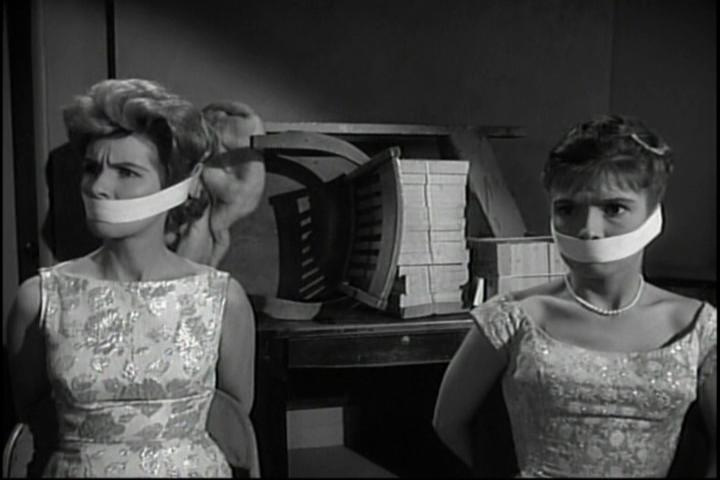God, where are we going? It’s a society that is growing up fast. It’s possibly because of what has happened in our country and throughout the world. There’s no communications gap. We find out immediately what’s happening. And no longer is our president on a great white horse, as you so well know. What you feel politically doesn’t matter in this discussion, but communications-television, news media-everything is instanteneous. Therefore, everybody is growing up fast. – William Castle, December 6th, 1973

In true William Castle fashion Zotz! (1962) is the B-Movie response to Disney’s The Absent Minded Professor (1961). The stories are essentially the same except that in Zotz! Professor Jonathan Jones (Tom Poston) discovers that an ancient coin grants him tremendous supernatural powers as opposed to inventing a synthetic material known as flubber. The other major difference is that, unlike Fred MacMurray, Professor Jones is a competent human being and a really decent guy.
There’s a child-like whimsy that permeates Zotz! which contrasts Castle’s more famous horror films. Almost all of Castle’s films made for Columbia Studios between 1958 and 1964 are aimed towards children, but none of them embrace wonderment the way that Zotz! does. It feels like Castle’s valentine to the cinema and its possibilities to astonish, entertain, and comfort. The mood of the film is akin to Tashlin without the satirical bite. Clearly Zotz! was a tremendous inspiration to Joe Dante’s work which so often perceives the medium of the cinema with a child’s awe.
For these reasons I found Zotz! to be superior to The Absent-Minded Professor. Not to mention the fact that Castle doesn’t stuff his film with repetitive set pieces or gratuitous scenes of special effects. The moments where Prof. Jones uses his powers to slow movement or zap bad guys with sudden pain are all driven by the film’s narrative thrust whilst simultaneously providing punch lines to gags. Zotz! is really well crafted, economical filmmaking with a big heart.
William Castle approached cinema as entertainment, fashioning his famous persona on equal parts Alfred Hitchcock and P.T. Barnum. Seeing a William Castle film is meant to happen in a communal context. Castle’s famous gimmicks are entirely dependent upon the audience being in a theater. Yet, watching Zotz! outside of the communal experience of the theatre I was still struck by a sense of belonging. Screening Zotz! alone in my living room during the pandemic I had this feeling that the film itself wanted me there, that this spectacle had been crafted just for me. This is a sensation I have rarely gotten from any film in any number of different situations. Watching Zotz!, as silly as it is, really did make me feel good. I suppose Castle’s intent to entertain and unite us in that entertainment is so strong that it needn’t always depend upon gimmicks, props, and technological innovations after all.
